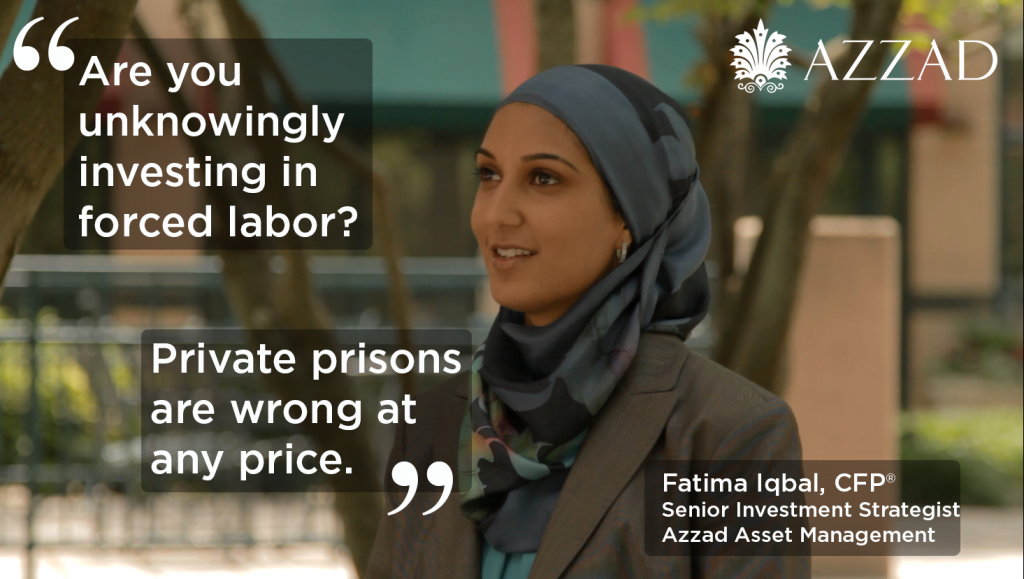
By Fatima Iqbal, CFP®
In late February, Attorney General Jeff Sessions reversed a Department of Justice (DOJ) plan to phase out the use of for-profit prisons. This boosted the stock prices of the two publicly traded for-profit prison companies in the U.S., Geo Group and CoreCivic (formerly known as Corrections Corporation of America), which had already seen their share prices soar since the November election of Donald Trump.
Last August, we explained why Azzad chooses not to invest in the companies that operate those private prisons, a policy that we maintain today. At the time, Deputy Attorney General Sally Yates cited research showing that private prisons “simply do not provide the same level of correctional services, programs, and resources; they do not save substantially on costs,” and “they do not maintain the same level of safety and security.” What we did not know then is that private prisons may be complicit in an even bigger problem: modern-day slavery.
Recently, a federal judge ruled to allow tens of thousands of current and former detainees at an immigration detention facility run by Geo Group to join a class-action lawsuit alleging that they were forced to work for $1 a day or for no pay, and were threatened with solitary confinement if they refused. It’s the first time in the U.S. that a class-action lawsuit over forced labor against a private prison company has been allowed to move forward.
The lawsuit maintains that detainees at the Denver Contract Detention Facility, a 1,500-bed compound operated by Geo Group in Aurora, Colorado, were required to work for up to eight hours a day cleaning the facility and preparing and serving meals. The lawsuit asserts that the practice violates federal anti-slavery laws, including the Trafficking Victims Protection Act.
Thousands of ICE detainees claim they were forced into labor, a violation of anti-slavery laws (The Washington Post, March 5, 2017)
This was at a facility holding immigrants who had been detained by U.S. Immigration and Customs Enforcement (ICE) while they waited for court appointments, meaning they had not even been convicted of a crime.
Of course, these serious allegations are not yet proven. But should we really be surprised if a private prison facility is engaging in forced labor?
Although these companies have an obligation to turn a profit for shareholders, their line of business — the incarceration of human beings — is unique. The incentive to slash expenses and raise revenue has been shown to negatively impact prison security, humane treatment of inmates, and rehabilitation programs. It isn’t such a stretch for this arrangement to result in human rights violations. Detainees, especially immigrants, are already often dehumanized in today’s society.
For Geo Group to be accused of enriching itself through the cheap or free labor of detainees awaiting trial is symptomatic of a larger problem. The problem relates to making a quick buck regardless of the ethical cost. It should be unacceptable to all of us for companies to do that, and investors should not look the other way while profiting from those actions. That’s why we enacted our ban on investing in private prisons in 2015. It was unethical to invest in them at that time and it’s unethical to do so now.
Bottom line: regardless of where the stock trades, private prisons are wrong at any price.
Fatima Iqbal, CFP®, is a senior investment strategist at Azzad Asset Management, a faith-based socially responsible investment advisor in Falls Church, Virginia.
